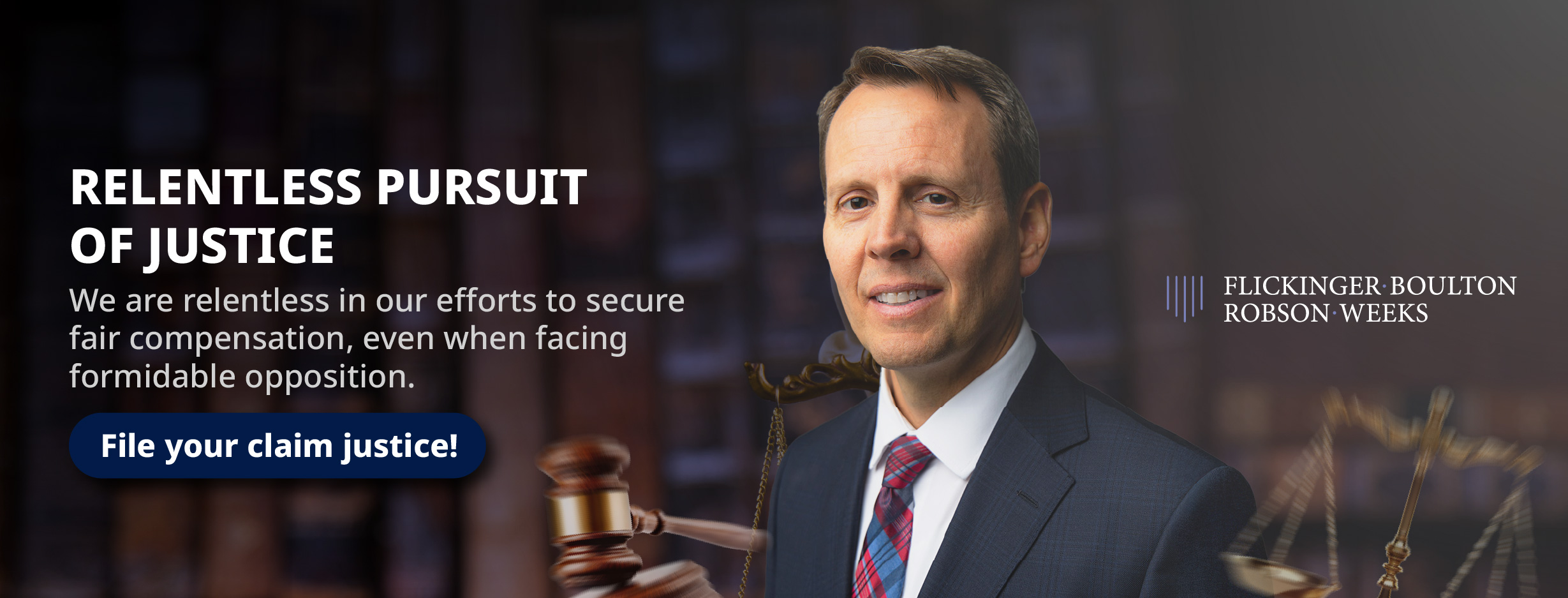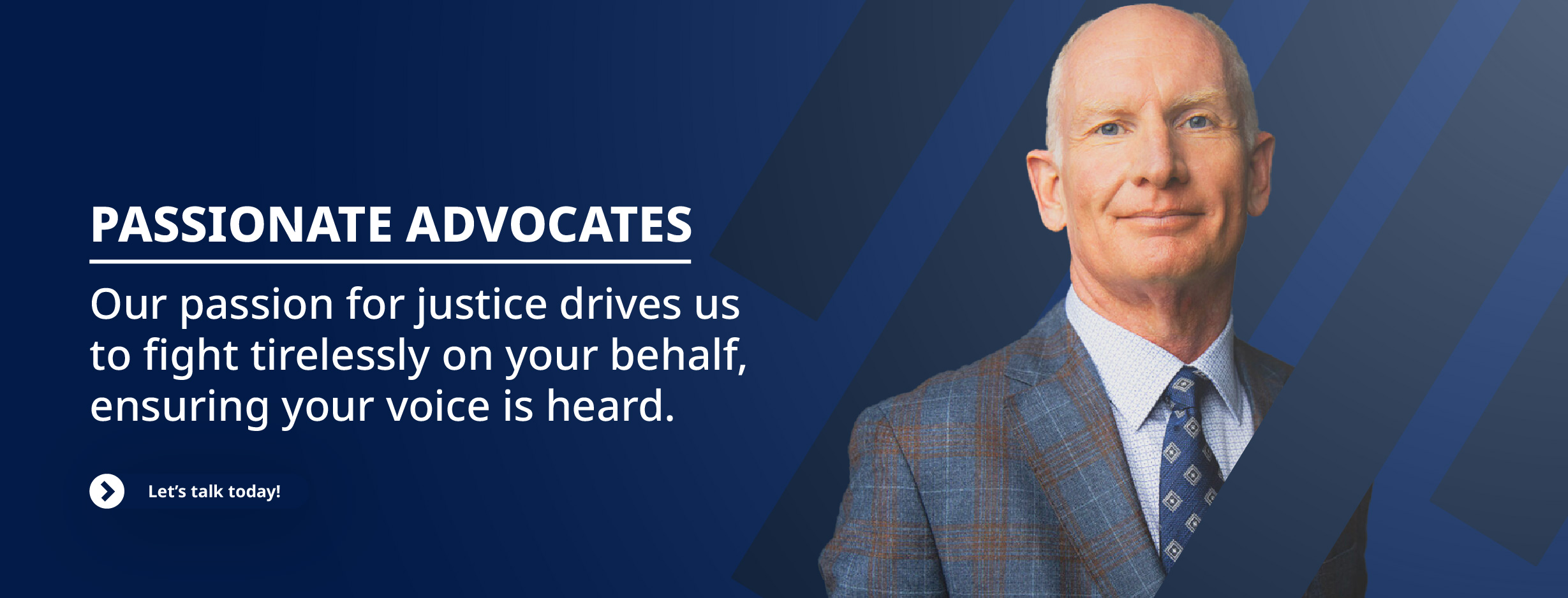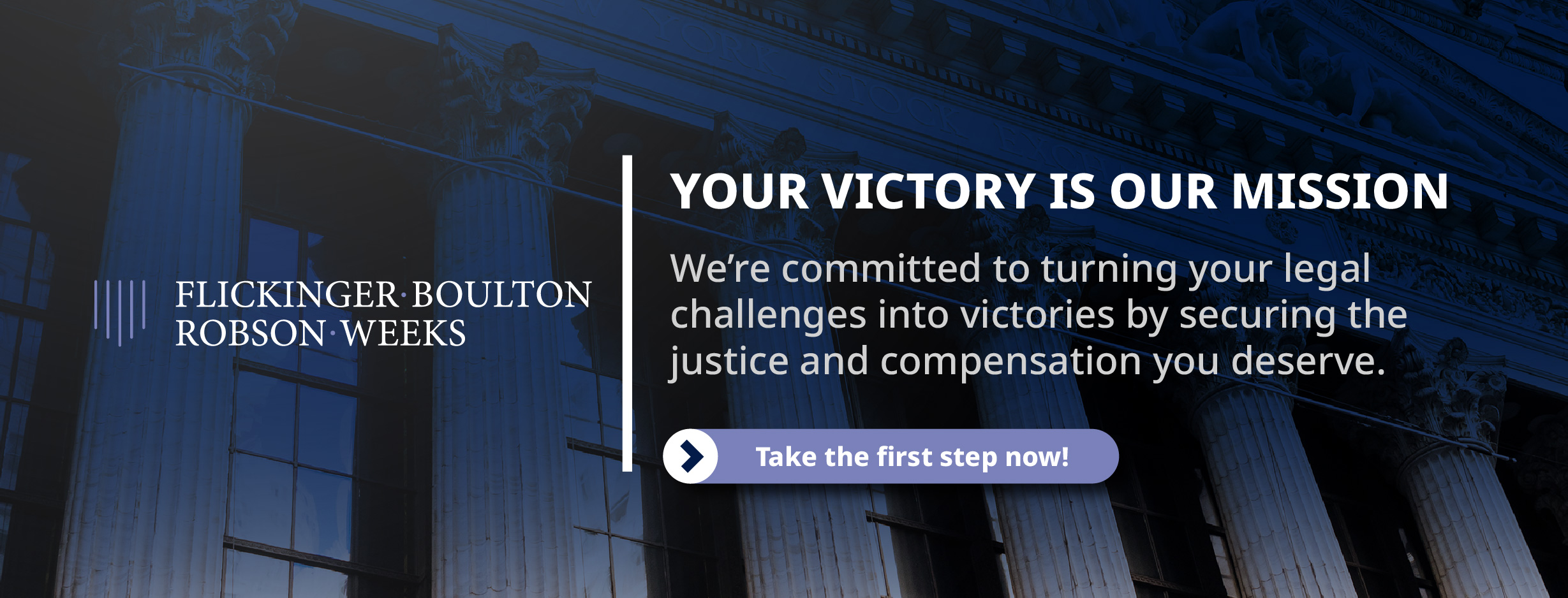¡Hablamos Español!
Weather can play a significant role in auto accidents throughout Sandy, making already hazardous road conditions even more dangerous. Rain, snow, ice, floods, and fog can reduce visibility, decrease traction, and increase stopping distances and timing, leading to a higher risk of collisions, especially in a city like Ogden, where weather can be unpredictable throughout the year, from snowy winters to rainy springs.
Even the most cautious drivers may struggle to navigate safely when roads become slick or when sudden weather changes create unexpected driving challenges. At Flickinger Boulton Robson Weeks, our experienced Ogden accident lawyers understand how weather-related accidents occur and how they impact liability in personal injury claims.
We will explore how different weather conditions impact car accidents and what kinds of weather hazards you might face on the roads in Northern Utah, how weather can affect liability in a crash, and how our firm investigates these types of cases. We will also walk you through the process of pursuing fair compensation for your injuries.
Ogden, located in Weber County, experiences various weather conditions that can increase the likelihood of car accidents. We have cold winters with snowfall, icy roads, and warmer seasons that may bring heavy rain, fog, or even hail.
Each type of weather comes with its own dangers, and it is important you understand these hazards so you can drive carefully or know what to do if you are involved in a crash.
Here are some of the most commonly recorded weather conditions that might impact a car accident in Ogden, UT:

When poor weather conditions play a role in an Ogden car accident, many people wonder how that impacts liability and negligence. You might think that “it was just the weather’s fault,” but in most cases, liability is more complex.
Even in snowy or rainy conditions, drivers must act responsibly. We want to explain some of the ways weather can affect liability so you can have a clearer picture of your legal rights and options.
All drivers owe a “duty of care” to other motorists, pedestrians, and passengers on the road. This means a driver should behave the way a reasonably careful person would in the same situation.
In bad weather, being “reasonably careful” often means slowing down, leaving extra space between cars, or using headlights and signals properly. If a driver fails to adjust to weather conditions, like speeding on icy roads or not defrosting their windshield, they could be found negligent.
Utah follows a comparative negligence system. This means that if you are partly responsible for an accident, your compensation might be reduced by your percentage of fault.
For instance, if you were speeding in snowy weather, but the other driver also ran a red light, both parties might share blame. It is essential to understand that weather alone does not remove liability. Instead, investigators look at whether each driver took the right steps to avoid a crash.
Sometimes, weather-related accidents in Ogden can be linked to poor road maintenance or lack of proper warnings.
For example, if a local authority fails to plow or salt an icy road in a timely manner, or if drainage systems are not working and water pools dangerously, there might be a case for government liability.
However, these cases can be tricky because of specific rules about suing government entities. We recommend seeking an attorney’s help if you think poor road maintenance contributed to your accident.
It is also the responsibility of each driver to maintain their vehicle in a safe condition, especially when preparing for bad weather. This includes replacing worn tires, ensuring windshield wipers work, and keeping headlights and brake lights functioning.
If a driver ignores these responsibilities and ends up causing a crash in rainy or snowy conditions, that negligence can be used against them when determining fault.
After a weather-related accident, you may notice insurance companies disputing who is truly at fault. Some insurers might claim the weather caused the crash, hoping to minimize payouts. That is why having an experienced Ogden car accident lawyer by your side is so important.
Our firm has successfully represented victims injured in accidents caused by poor road or weather conditions. We investigate every factor involved, from negligent drivers to city maintenance issues, to secure fair settlements.

If you have been in a crash during difficult weather conditions in Ogden, you might be wondering how to prove who is at fault.
Gathering evidence can be more challenging in these situations, but it is crucial for building a strong case. We are committed to helping you collect and organize the information you need to pursue compensation for your injuries and damages.
Right after an accident, and only if it is safe, use your phone to take pictures or videos of the crash scene. This includes damage to both vehicles, the surrounding environment (such as icy roads or puddles), and any skid marks. If possible, capture the weather conditions, like the level of snowfall or the intensity of rain. Visual evidence can help show the effect of weather on the roads.
Other drivers, passengers, or pedestrians who saw the accident may be able to offer valuable insights. For instance, a witness might mention that the at-fault driver was going too fast for the snowy conditions or that they saw the driver fail to use headlights in heavy rain.
We encourage you to get contact information from anyone who witnessed the crash, as their statements can support your version of events.
Law enforcement officers who respond to the crash will often note if weather was a factor. They might record details such as road conditions, driver behavior, and whether any citations were issued.
Make sure you obtain a copy of the police report. If the officer observed that a driver did not adapt to the weather or was driving recklessly, that information could be used as strong evidence.
In more complicated accidents, we may consult accident reconstruction specialists, engineers, or other expert witnesses who can analyze the crash.
For instance, they might use scientific methods to determine how fast the other driver was traveling on an icy surface or whether your vehicle had enough time to stop under normal conditions. These expert opinions can be powerful in proving that another party’s negligence, and not just the weather, led to the accident.
Your medical records are crucial in showing the extent of your injuries. These records help connect the accident to your injuries, proving that the crash caused or worsened your condition.
If you need ongoing treatment, keep track of all your medical appointments, bills, and prescriptions. This evidence will help show the financial impact of the accident on your life.
We can also gather official weather data from reliable sources, like the National Weather Service, to confirm the exact conditions at the time of your accident.
This information can show if severe weather warnings were in place or if the conditions were worse than usual. It can help explain why the roads were dangerous and highlight the other driver’s obligation to act responsibly.

When you come to Flickinger Boulton Robson Weeks, we want you to feel confident about our approach. We do not just see you as another case; we see you as a person who needs understanding, guidance, and support.
Don’t hesitate to get the legal support you need, and contact our team of experienced Ogden car accident lawyers today for a personalized consultation free of charge.
We start by listening to your story. This is your opportunity to explain how the accident happened, what the weather was like, and how your injuries have affected your life.
We will ask questions to gather key facts, such as the location of the accident in Ogden, the time of day, and any immediate steps you took. This gives us a solid foundation to understand your situation and advise you on the next steps.
Once we agree to work together, we launch a thorough investigation. We look at police reports, talk to witnesses, gather photos, and consult weather records.
If needed, we bring in expert testimonies, like accident reconstruction professionals, to help us understand exactly how the crash occurred. We aim to show that the other party should be held responsible for your injuries.
Insurance companies might try to place the blame on the weather or argue that you were partly at fault. Our job is to stand up for you. We will present the evidence we have gathered and challenge any unfair tactics by the insurance adjusters.
Whether dealing with your insurance provider or the at-fault driver’s insurer, we aim to secure a settlement covering your medical bills, lost wages, pain and suffering, and more.
Although many cases settle before trial, we are prepared to represent you in court if necessary. Our lawyers have extensive litigation experience in Ogden and throughout Utah.
We will argue your case before a judge or jury using the evidence and expert testimony we have collected. While going to court can be intimidating, we will guide you through every step and make sure your voice is heard.
We know that car accidents do not just cause physical injuries. They can also lead to emotional distress and financial difficulties.
That is why we do more than just handle the legal side. We can connect you with local resources, recommend medical professionals if you need further treatment, and make sure you have the support system you need.
Throughout the process, we keep you informed and involved. We believe in open communication, so we encourage you to ask questions and share concerns. We respond promptly to your calls and emails because we do not want you to feel left in the dark about your case.
If you or someone you love has been injured in a weather-related car accident in Ogden, we encourage you to contact Flickinger Boulton Robson Weeks as soon as possible. You should not have to navigate insurance claims, medical bills, and legal paperwork alone. Our team is here to give you personalized attention and strong advocacy.
We know that every accident has its own unique story, and that is why we begin by listening to what happened to you. From there, we can discuss your legal options and guide you on the path toward compensation. Whether your crash was caused by icy roads, heavy rain, or another weather factor, you deserve to have your rights protected.
Contact an Ogden car accident lawyer today at (801) 500-4000 to schedule a free consultation. We review your case, answer your questions, explain how we handle weather-related car accident cases, and let you know what to expect. Our mission is to help you regain control of your life after a devastating crash.
Bicycle Accidents
Motorcycle Accidents
Boating Accidents
Recreational Vehicle Accidents
Bus and Mass Transit Accidents
Pedestrian Accidents
Automobile Accidents
ATV or UTV Rollovers
Commercial Vehicle Accidents
Semi Truck and Trailer Accidents